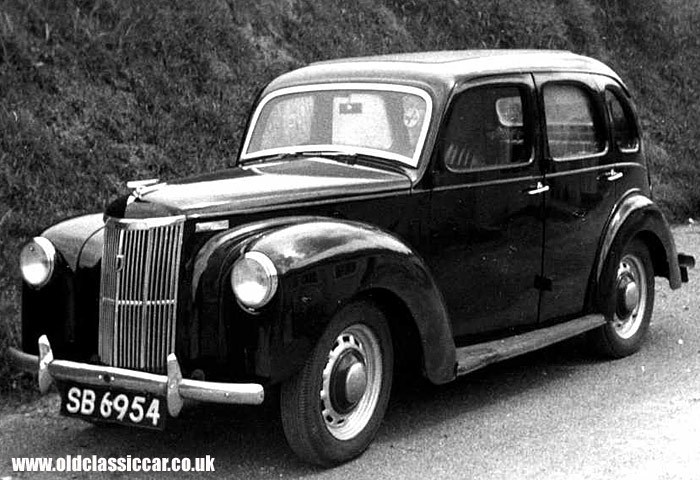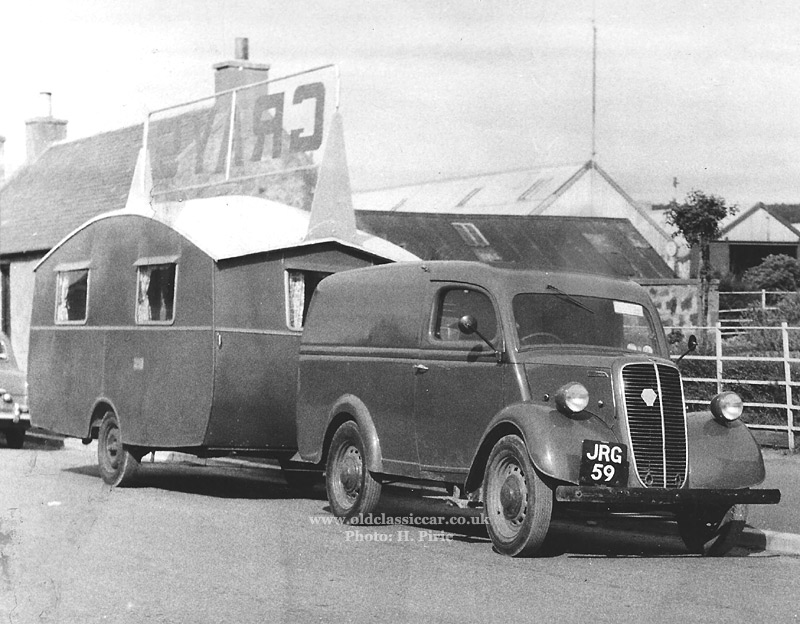
Classic cars forum & vehicle restoration.
|
|
| Author |
Message |
Zed1rider
Joined: 09 Aug 2019
Posts: 2
|
 Posted: Sat Aug 24, 2019 2:42 pm Post subject: Stripping a sidevalve Posted: Sat Aug 24, 2019 2:42 pm Post subject: Stripping a sidevalve |
 |
|
Greetings from America. I was visiting a parts supplier in Kansas and whilst looking for some V8 parts noticed a sidevalve engine and transmission sitting on the floor. I asked about it and firstly, they were surprised I knew what it was and second, they asked if I would like to have it as it was just taking up space. So 1/2 hour later it was loaded in my van. They advised it came from an Anglia.
I've stripped many American Ford sidevalves, V8's, 3.9 litre and 2.2 litre along with model T and A fours so I am familiar. My first surprise was the use of a timing chain to drive the cam. Did this engine make its debut in 1932 with a chain? Was also surprised it uses large diameter cam followers (pushrods) similar to those used in V8's.
Sorry to say I didn't think to get the engine number for this post and I am some distance away from it at the moment. I'll have that when I return to check for responses. Thank you. |
|
| Back to top |
|
 |
alastairq
Joined: 14 Oct 2016
Posts: 1950
Location: East Yorkshire
|
 Posted: Sat Aug 24, 2019 3:35 pm Post subject: Posted: Sat Aug 24, 2019 3:35 pm Post subject: |
 |
|
http://www.oldclassiccar.co.uk/forum/phpbb/phpBB2/viewtopic.php?t=19194&sid=3bf4dca6d9c873d8d33a3b1ded527283
A fairly comprehensive post about the Ford sidevalve engine.
From the link below, it seems 1948 was the earliest year the US got the Anglia.
https://en.wikipedia.org/wiki/Ford_Anglia
The first of the 4 cylinder UK side valves had a gear driven camshaft....they went to chain driven more or less with the introduction of the car above [pre-WW2]...
I expect you have the 1172cc version [10HP..nothing to do with BHP!]...but there was an 8HP version 933cc version, with which the Anglia was initially equipped [but not for US market]
_________________
Dellow Mk2, 1951 built, reg 1952.
Fiat 126 BIS
Cannon special [1996 registered. Built in 1950's]
----------------------------------------------
Ford Pop chassis, Ashley 1172 bodyshell, in pieces. |
|
| Back to top |
|
 |
Zed1rider
Joined: 09 Aug 2019
Posts: 2
|
 Posted: Thu Sep 05, 2019 12:40 pm Post subject: Casting numbers Posted: Thu Sep 05, 2019 12:40 pm Post subject: Casting numbers |
 |
|
Thanks for the prompt response. I had found that link previously and found it quite interesting. Is there a source for the major changes to this engine over time? For example, a brief history of major changes to the V8 would go something like this:
Introduced in 1932. Block changed in 1936 to allow used of shell type bearings and later that year the water pumps moved from the head to the block. Head stud count increased from 21 to 24 in 1938. Bore size increased from 3 and 1/16 inch to 3 and 3/16 inch for the 1939 Mercury introduction. Major redesign for 1949 which included the 4 inch stroke for Mercury. Water outlets moved to the front of the heads and the integral bell housing was no longer part of the block casting.
Back to my sidevalve.
The casting number I find on the block is: E93A 6015.
Is the serial number to be found on the transmission as it is on U.S. Fords starting in 1932?
Cheers. |
|
| Back to top |
|
 |
alastairq
Joined: 14 Oct 2016
Posts: 1950
Location: East Yorkshire
|
|
| Back to top |
|
 |
Rick
Site Admin

Joined: 27 Apr 2005
Posts: 22438
Location: UK
|
 Posted: Thu Sep 05, 2019 1:19 pm Post subject: Posted: Thu Sep 05, 2019 1:19 pm Post subject: |
 |
|
Welcome to the forum.
E93A signifies a 10HP 1172cc engine, as fitted to a variety of the "sit up and beg" style Fords, most commonly the 103E Popular saloon, and the E493A Prefect saloon, although the engine did find its way into other models, and the 10cwt E83W vans and pickups. Later sidevalve Fords, the 100E range, also had a 1172cc sv motor, but incorporated a number of key differences over the previous E93A version.
The 103E Popular:

http://www.oldclassiccar.co.uk/ford_pop.htm
The E493A Prefect:

http://www.oldclassiccar.co.uk/fordprefect.htm
E83W van:

http://www.oldclassiccar.co.uk/ford-van.htm
RJ
_________________
Rick - Admin
Home:https://www.oldclassiccar.co.uk
Videos:https://www.youtube.com/user/oldclassiccarRJ/videos
OCC & classic car merchandise (Austin, Ford ++):
https://www.redbubble.com/people/OldClassicCar/shop |
|
| Back to top |
|
 |
|
|
You cannot post new topics in this forum
You cannot reply to topics in this forum
You cannot edit your posts in this forum
You cannot delete your posts in this forum
You cannot vote in polls in this forum
|
php BB powered © php BB Grp.
|
